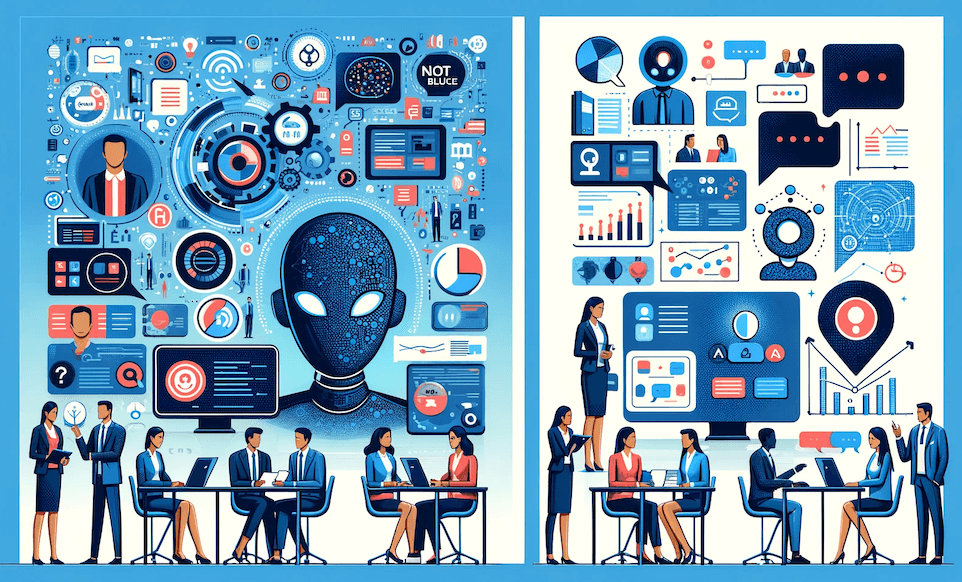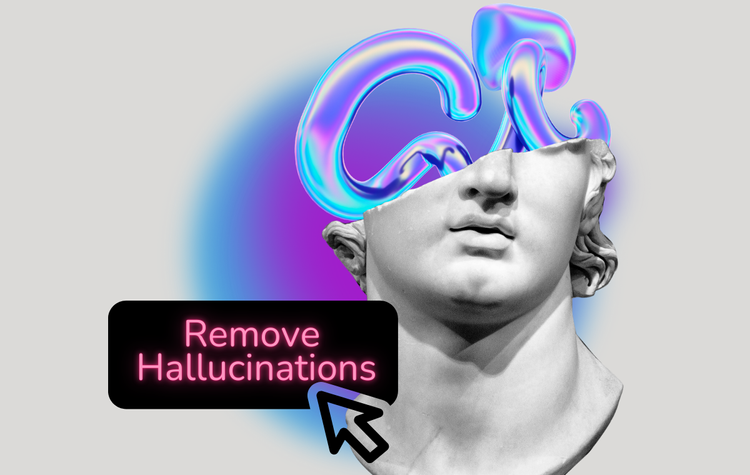How to Evaluate a Conversational AI Insurance Chatbot: 11 Tips
Conversational AI insurance chatbots make life easier for you and your customers. Gleen AI stands unparalleled in its ability to understand complex questions and generate relevant answers. Most importantly, Gleen AI doesn't hallucinate.

Artificial intelligence is changing the landscape of every industry with its novel capabilities and innovative technologies.
Per an Accenture report, 79% of insurance company executives believe that AI will transform how they communicate with customers. Today, insurance agents are rapidly adopting conversational AI and generative AI.
Choosing the right conversational AI insurance for your firm is a careful process. To help you out, here are the top 11 criteria for selecting a conversational AI for insurance.
1. Does the AI Use Conversational AI or Generative AI?
Insurance companies can use either conversational AI and generative AI. Both have distinct features, use cases, and approaches.
Conversational AI uses Natural Languages Processes (NLP) and Natural Language Understanding (NLU).
Conversational AI for insurance matches user questions to the pre-existing set of questions and their respective answers. It cannot respond to anything beyond the list of questions and answers provided to it.
Generative AI is a part of conversational AI as it interacts with users through conversations. Generative AI utilizes the Large Language Models (LLMs) to understand questions and respond to them.
With generative AI, you don’t have to create a lengthy list of questions to match to, like in conversational AI. It can easily ingest information from different resources such as carrier websites, PDFs, brochures, etc.
Generative AI can also understand more complex customer questions.
Generative AI's ability to provide more effective and relevant customer service makes it an advanced subset of conversational AI. All AI chatbots in the future are likely to use generative AI.
2. Comprehend Complex User Questions
For a long time, AI chatbots relied on keyword detection and decision trees for responding to user questions. It restricted the chatbot to answer only a limited number of questions.
This type of AI chatbot led to unpleasant customer experiences, which resulted in reduced customer satisfaction.
With generative AI chatbots like Gleen AI, insurance chatbots can understand complex user questions well and improve customer service overall.
In fact, the capability to understand highly intricate, insurance-related queries is a prominent criterion for selecting an insurance conversational AI.
3. Identify and Answer in Foreign Languages
Sometimes agents are unable to understand the customer because of language barriers.
Generative AI insurance chatbots are multilingual, meaning they can identify foreign languages immediately. In addition to identifying, they can also answer user questions in that language and serve as a translator.
Reliable generative AI chatbots can detect, understand, and respond to customers in various foreign languages.
4. Provide Precise and Relevant Answers
In insurance, your answer matters, whether customers ask about new policies or claims.
AI chatbots in insurance need to give accurate, relevant, and to-the-point answers to the customers.
5. Not Hallucinate
Life, medical, and vehicle insurance are three of the most crucial types of insurance. You can't rely on an insurance chatbot that makes things up.
Generative AI chatbots do an amazing job of understanding what the user is asking before answering. However, sometimes generative AI chatbots make up facts and figures or hallucinate, which can be damaging later on.
Gleen AI stands out in the competition with its ‘no hallucination’ conversational chatbots. Gleen AI understands complex questions and provides relevant answers without hallucinating.
For instance, this video here shows a custom GPT from Open AI and Gleen AI, both given the same knowledge. The GPT hallucinates, but not Gleen AI.
6. Always Provide s Disclaimer That It is Not A Licensed Insurance Agent
No amount of insurance knowledge can make a conversational chatbot and a licensed insurance agent the same.
AI chatbots for insurance must inform customers that they are not licensed insurance agents.
The disclaimer helps when the insurance company's reputation is in danger because of wrong information from the AI chatbot.
7. Escalate to an Insurance Agent
AI chatbots in insurance can connect users to real agents for personalized help with complex issues.
During business hours, conversational chatbots can connect customers to a licensed insurance agent through a live chat. If you talk to the AI chatbots outside business hours, they can send your case to an agent by email.
Good AI chatbots in insurance should be able to schedule a meeting with an agent, either in person or over the phone.
8. Take an Application for Insurance
Conversational AI improves insurance agents' lives by enhancing all insurance tasks, including lead generation, claims, and applications.
Conversational AI for insurance proves to be highly effective in assisting customers in application procedures. They can answer questions related to policies and packages while the customer finalizes the application documents and decisions.
9. Integrates with the CRM
Conversational chatbots for insurance should seamlessly integrate with the CRM. They will significantly enhance communication between customers and insurance firms.
Insurance chatbots should provide logged-in customers with timely and personalized answers. In addition, good conversational AI insurance chatbots should be able to respond to benefits, payments, and beneficiary questions.
Self-serve is another important aspect of a reliable conversational chatbot. Conversational AI should be able to handle address changes, premium payment acceptance, policy cancellations, and beneficiary addition or removal.
10. Targets Content
An insurance company or broker should be able to benefit from a large number of specialized insurance chatbots.
Conversational chatbots can specialize in one type of insurance. Insurance firms can benefit from chatbots for different types of insurance.
For example, if your company provides several segments of insurance, you can have a different chatbot profile for each.
Distinct conversational AI insurance chatbots help narrow down user questions and offer customized answers. With this type of division of labor, customer satisfaction scores and NPS will improve.
11. Protect Customer Privacy and Data
This era has a rising concern for data privacy and we need to take it seriously. This is especially true for insurance companies as they deal with sensitive data of users.
Conversational chatbots as insurance agents ensure complete privacy and security of customer data.
Well-reputed insurance conversational chatbots like Gleen AI guarantee customer data protection with SOC 2 Type 2 compliance.
Gleen AI: Your Go-to Conversational Chatbot for Insurance
Experience excellence in insurance customer service and user satisfaction with Gleen’s dynamic conversational chatbot.
You can rely on Gleen AI to transform your insurance company, by offering:
- Application guidance and recommendations
- 24/7 assistance and better engagement
- Seamless insurance claims
- Multilingual responses
- Reduced labor costs and higher security
Boost your customer service with Gleen AI. Request a demo of Gleen AI or create your own free generative AI chatbot now.



